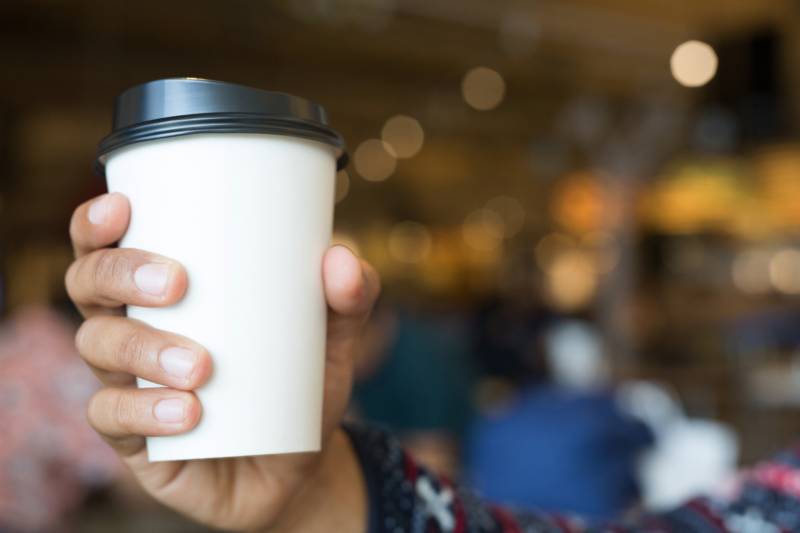Larger coffee and fast-food chains around the U.S. are feeling a sense of urgency to be more environmentally friendly, and will no doubt be watching, said Bridget Croke, of New York-based recycling investment firm Closed Loop Partners, which is working with Starbucks and McDonald’s to develop an eco-friendly alternative to the disposable coffee cup.
Despite the name, today’s conventional paper cups for hot drinks aren’t made solely from paper. They also have plastic linings that prevent leakage but make them hard to recycle, Croke said. She says it’s unlikely large national chains will banish disposable cups, in the immediate term, or persuade all customers to bring mugs, so they’re looking for other solutions.
Starbucks and McDonald’s chipped in $10 million to a partnership with Closed Loop to develop the “single-use cup of the future” that is recyclable and compostable.
“They know there are business risks to not solving these problems. And the cup is the tip of the spear for them,” said Croke, adding that Blue Bottle’s choice of San Francisco for its test run is clearly the right market.
Starbucks, which has more than 15,000 U.S. cafes and about 16,000 internationally, plans to test newly designed recyclable cups in five cities next year: San Francisco, Seattle, New York, Vancouver and London, spokeswoman Noelle Novoa said.
California cities have long been leaders in recycling and passing laws to encourage eco-friendly habits.
This year, the state became the first to ban restaurants from automatically handing out plastic straws with drinks. It was also the first, in 2014, to prohibit stores from providing disposable plastic grocery bags to shoppers, and bags at checkout now cost 10 cents.
Also this year, San Francisco International Airport became the nation’s first major airport to stop selling water in plastic bottles. Water is now sold in glass bottles and aluminum cans, and travelers are encouraged to bring their own empty bottles to fill up for free.
Starting in January, cafes and restaurants in Berkeley will charge 25 cents for disposable cups, and San Francisco is considering similar legislation.
Anticipating the fee, a group of about a dozen Berkeley cafes teamed up in a mug-sharing program, where customers can rent a stainless steel cup from one cafe and drop it off at any of the others. Vessel, the Colorado start-up that provides the cups, has a similar program running in Boulder.
Many coffee drinkers in the San Francisco area are taking Blue Bottle’s announcement in stride.
“Of course it’s a good idea,” said freelance writer Tracy Schroth, at a Blue Bottle cafe in Oakland. “It’s such a small step to ask people to bring their own cup. People just have to get into the mindset.”

